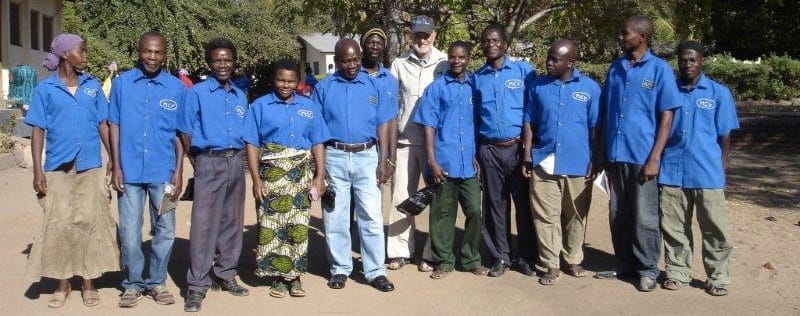Village Based Orphan Care
Rural Mangochi District, along the southern shores of Lake Malawi, is composed of villages engaged primarily in subsistence farming and fishing. Village populations are family based to a large extent. Up until the mid 1990’s any child who lost parents was taken in by extended family, thereby making the concept of “orphan” somewhat rare. But this excellent system of absorbing orphans broke down under the weight of tens of thousands of orphans created by the AIDS epidemic.
A typical village composed of mud-hut homes
MCV tried to revitalize the extended family fostering approach by providing important support to families willing to take in an orphan in their village. An orphan who remains in his or her own village has a sense of family, of home, of who his or her people are, and is raised within his or her own cultural milieu.
This approach has worked well for 15 years in our 37 village catchment area. Now grandmothers previously dealing with four to six orphaned grandchildren have only one or two, and orphan care is spread out more evenly in the villages.
An orphan fostering family receives blankets for the cold season, infant nutritional supplement, school uniforms for primary school students, seeds for planting in times of impending famine, treated bednets for pregnant women and young children, AIDS and health counseling, and most valued of all – free access to the Koche Health Clinic for the whole family.

Village volunteers make village-based-care possible.
MCV has the full cooperation of the village chiefs who appoint two village volunteer liaisons with MCV whose job it is to identify orphans as they occur, place them with foster families, monitor their progress, and link the orphan and family to assistance as needed.
In order to give our donors a bit of the flavor of each village we will be offering profiles of each village in our new series “Village Profiles” on the MCV blog. Read the first installment in our series, Njereza Village Profile here.